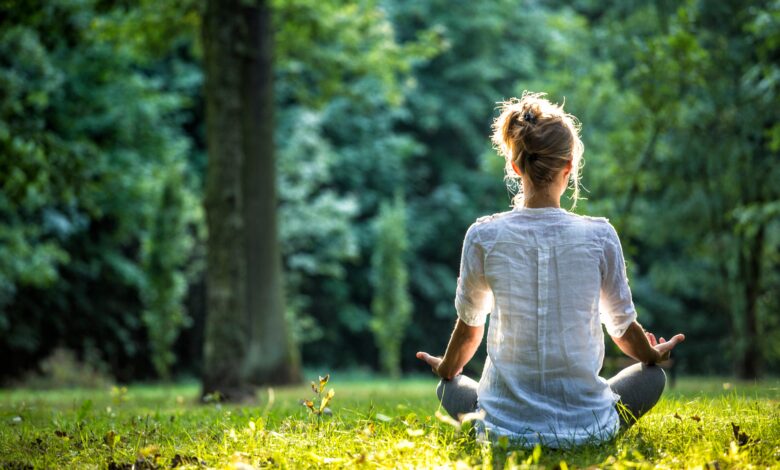Here’s the Best Time to Meditate During the Day—and the Time to Avoid

Meditation is often described as hanging out with your soul—and for good reason. But what’s the best time to meditate?
Studies have reported that a regular meditation practice can lead to enhanced attention and memory, reduce stress, and promote emotional well-being. But in a world constantly teeming with distractions, there is one period of time during the day that is more beneficial than others for helping you get in touch with your inner self.
When should I be meditating?
If you are looking to reorder your thoughts and give your mental headspace a boost of zen, certain times are more beneficial than others. According to health and wellness consultant Shikha Agarwal, the last quarter of the night before sunrise as well as early morning is the healthiest time to meditate.
“The peaceful atmosphere is further compounded by the fact that the mind is in a naturally calm state after a restful night of sleep,” she explains. “The stillness of this time also allows for better concentration and a more profound meditative experience, thereby enhancing overall well-being.”
When should I avoid meditating?
While a quick dose of zen sounds good for just about any hour of the day, experts do recommend caution at some points of time during the day, such as after a heavy meal.
“Meditating right after a heavy meal can be counterproductive, as the body is focused on digestion, and it may be challenging to achieve the necessary mental focus for meditation,” Agarwal says. “It’s advisable to wait for some time after eating to allow the digestive process to settle before engaging in a mindful meditation session.”
What are some other times that work?
While the early morning can offer a peaceful slate for engaging in meditation, you might find that you need to center on that same feeling of calmness and serenity at different points of time during the day. From focusing on breath work to opting for guided meditations with apps, like Headspace, here are the varied ways in which you can make meditation a part of your everyday routine.
During your lunch break:
A brief mindfulness meditation can be beneficial to help you re-energize for the rest of the day. This can involve focusing on the breath, observing sensations or practicing gratitude. These small acts can offer a mental reset and boost productivity for the remainder of the day.
Before bedtime:
As you are winding up before bed, holding a complicated yoga pose may not be on the top of your priority list—which is why, a calming meditation, like yoga nidra, can help. This helps promote relaxation, alleviate the stress of the day and improve the quality of sleep.
In moments of stress:
Given the fast-paced lives that we lead today, moments of stress can be all too common. If you are looking to make it through a rough patch in your day, a short meditation session that focuses on your breath can provide a quick and effective way to manage anxiety.
After the work day:
Instead of zoning out on the couch for hours at a time, it helps to give your mind the tools that it needs to process the happenings of a hectic work day. A grounding meditation that reconnects you with your physical environment can help you transition from the demands of work to a more serene and balanced state, fostering a smoother segue into your personal time.



